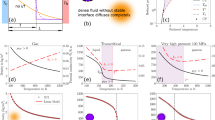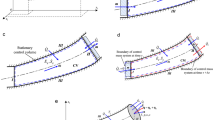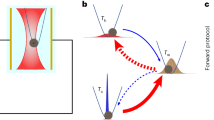Abstract
DR. HALDANE considers my statement of van't Hoff's theory (it is not mine) as incoherent. I cannot do better than quote, as an alternative statement, from the account of osmotic pressure in the book under review (p. 109): “Let us imagine pure hydrogen and pure nitrogen at ordinary atmospheric pressure and contained in two equal gas-tight chambers separated from one another by a rigid septum permeable to the hydrogen but completely impermeable to the nitrogen. The hydrogen contained in chamber 1 will immediately begin to diffuse into the nitrogen in chamber 2, and will continue to do so until the pressure of the hydrogen is the same in the two chambers. … If the pressure in the first chamber is kept constant, by reducing its volume or letting in hydrogen as required, the pressure in the second chamber will be two atmospheres”.
This is a preview of subscription content, access via your institution
Access options
Subscribe to this journal
Receive 51 print issues and online access
$199.00 per year
only $3.90 per issue
Buy this article
- Purchase on Springer Link
- Instant access to full article PDF
Prices may be subject to local taxes which are calculated during checkout
Similar content being viewed by others
Author information
Consortia
Rights and permissions
About this article
Cite this article
THE REVIEWER.. Solutions and Heat Engines. Nature 123, 445–446 (1929). https://doi.org/10.1038/123445c0
Issue Date:
DOI: https://doi.org/10.1038/123445c0
Comments
By submitting a comment you agree to abide by our Terms and Community Guidelines. If you find something abusive or that does not comply with our terms or guidelines please flag it as inappropriate.



